Reading Non-Fiction Worksheets for Ages 5-7
73 filtered results
-
From - To
Discover our engaging Reading Non-Fiction Worksheets for ages 5-7 offered by Kids Academy! These expertly designed worksheets help young learners explore the fascinating world of non-fiction. Perfect for early readers, our worksheets focus on essential skills like comprehension, vocabulary, and critical thinking. By engaging with captivating real-world topics, children will develop a love for reading while honing their understanding of the text. Ideal for use at home or in the classroom, our resources provide a solid foundation for academic success. Join us in nurturing curiosity and enhancing reading skills with our fun and educational non-fiction worksheets!
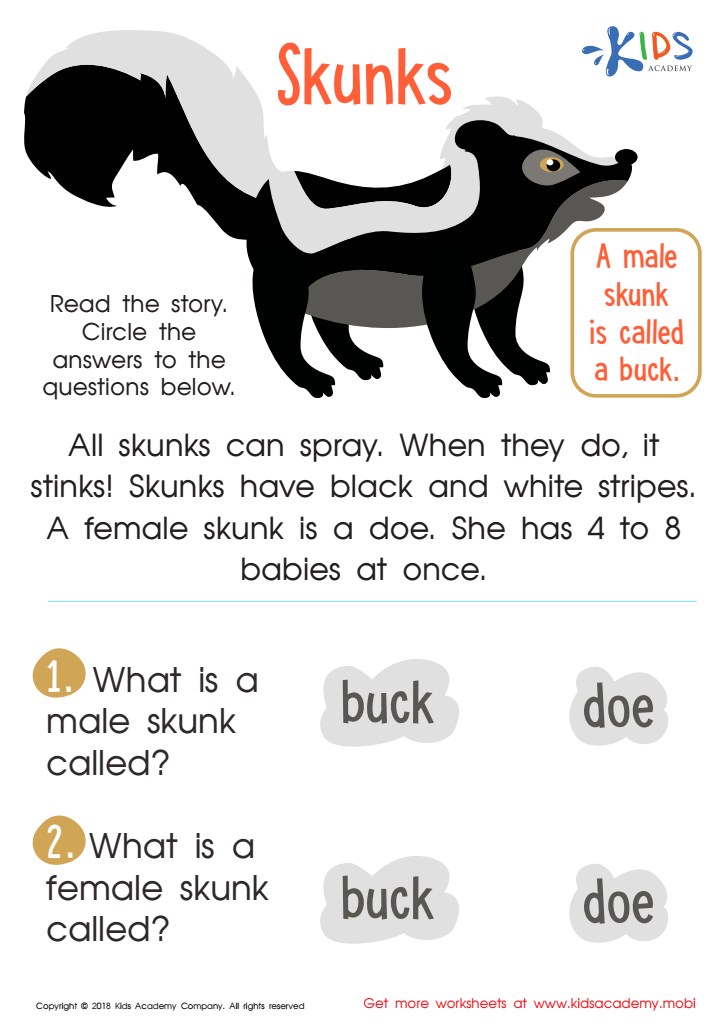

Skunks Worksheet
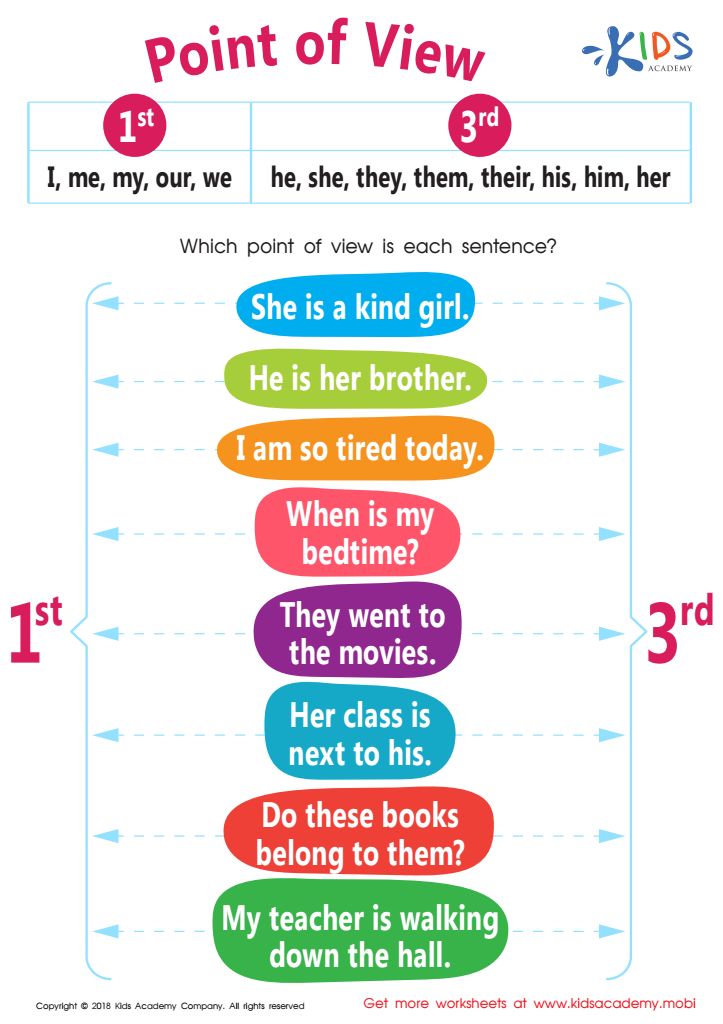

Point of View Worksheet
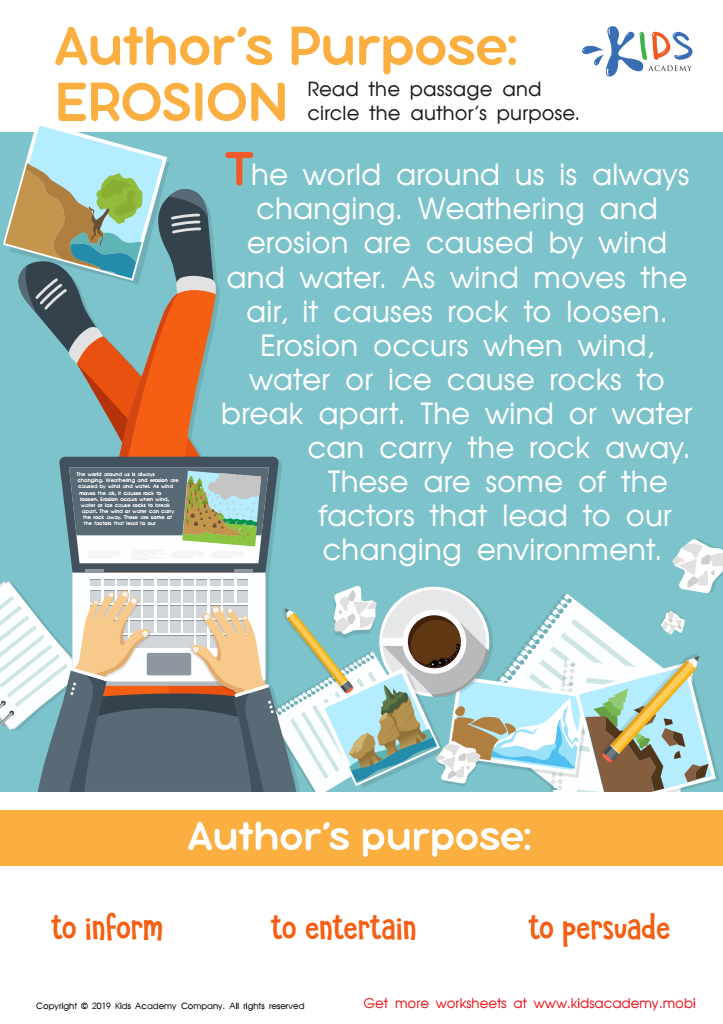

Author’s Purpose: Erosion Worksheet


White House Worksheet
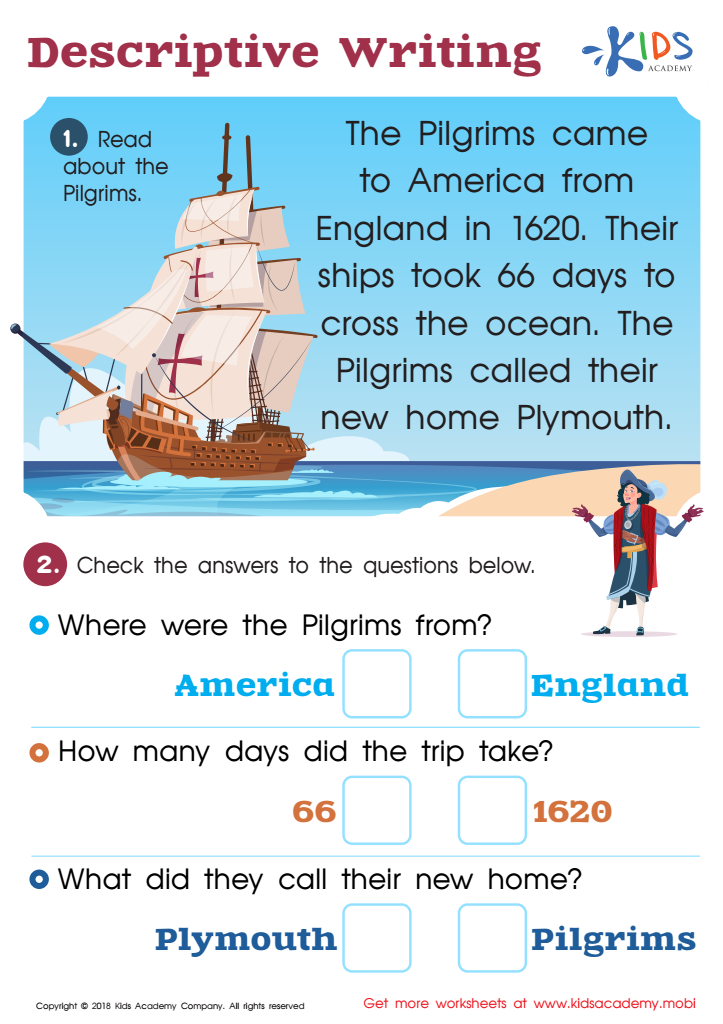

Descriptive Writing Worksheet: Part 1
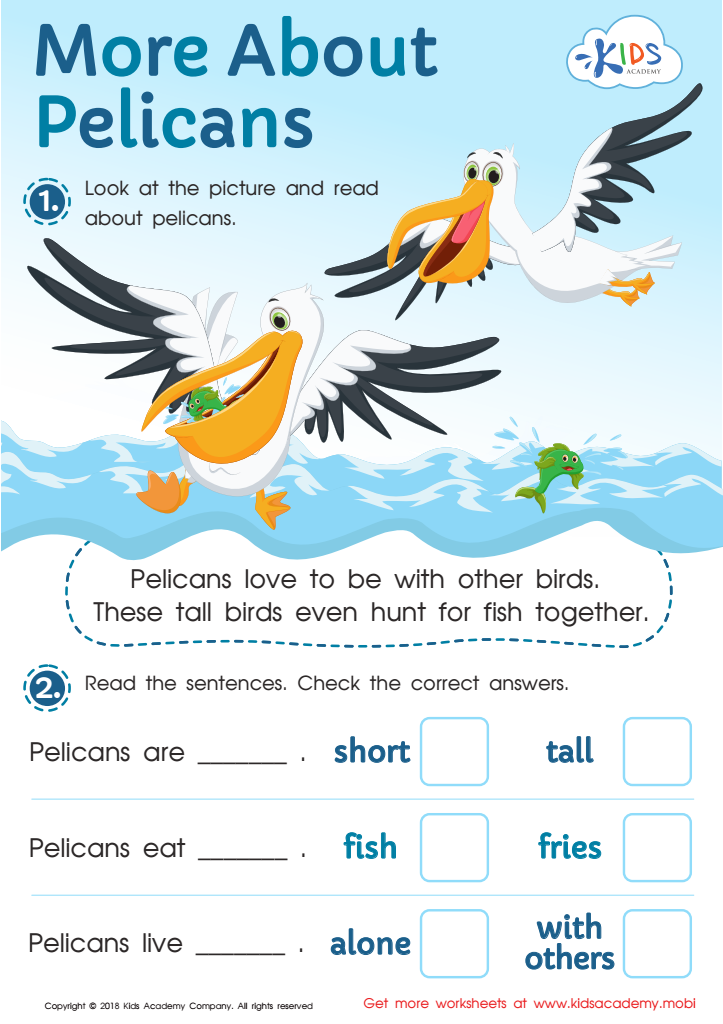

More About Pelicans Worksheet
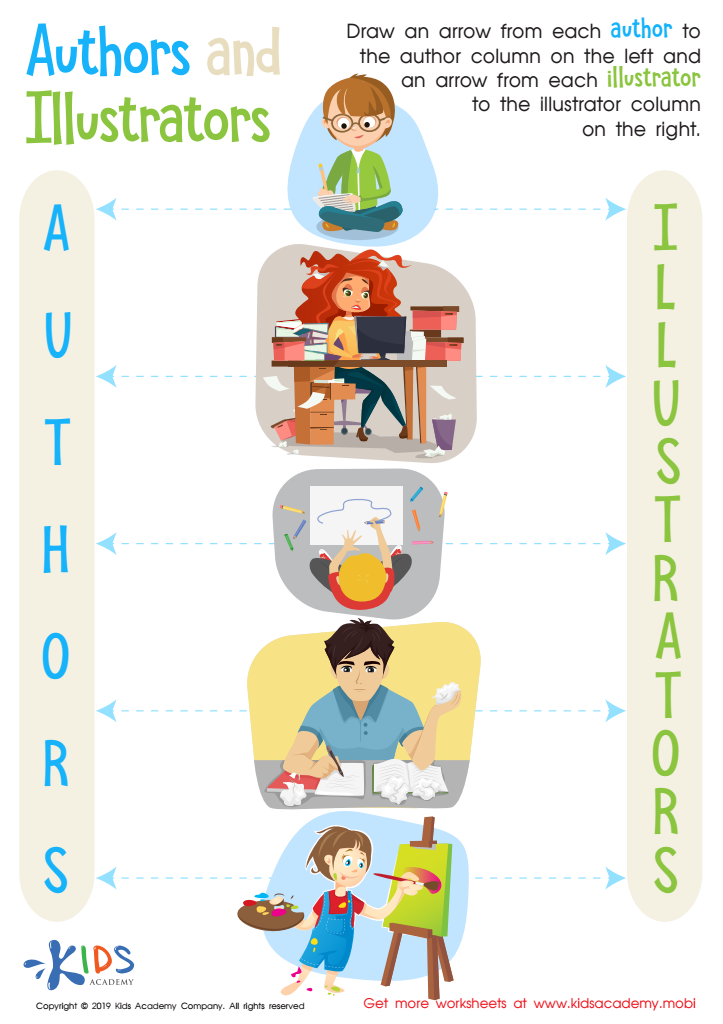

Authors and Illustrators Worksheet
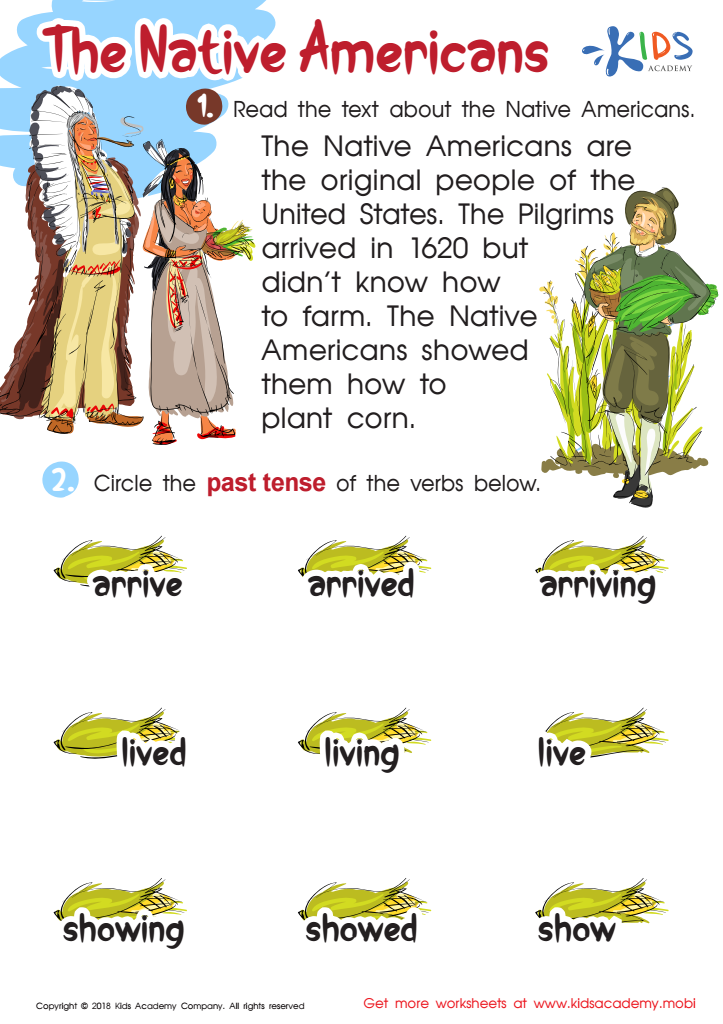

The Native Americans Worksheet
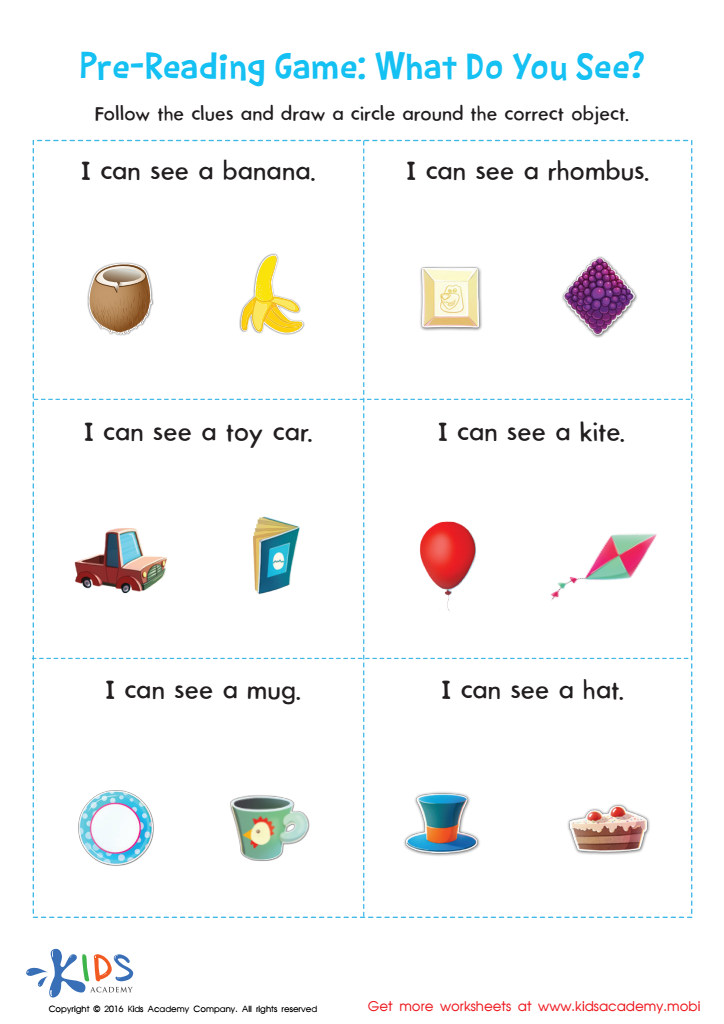

Pre–reading Worksheet: What Do You See?
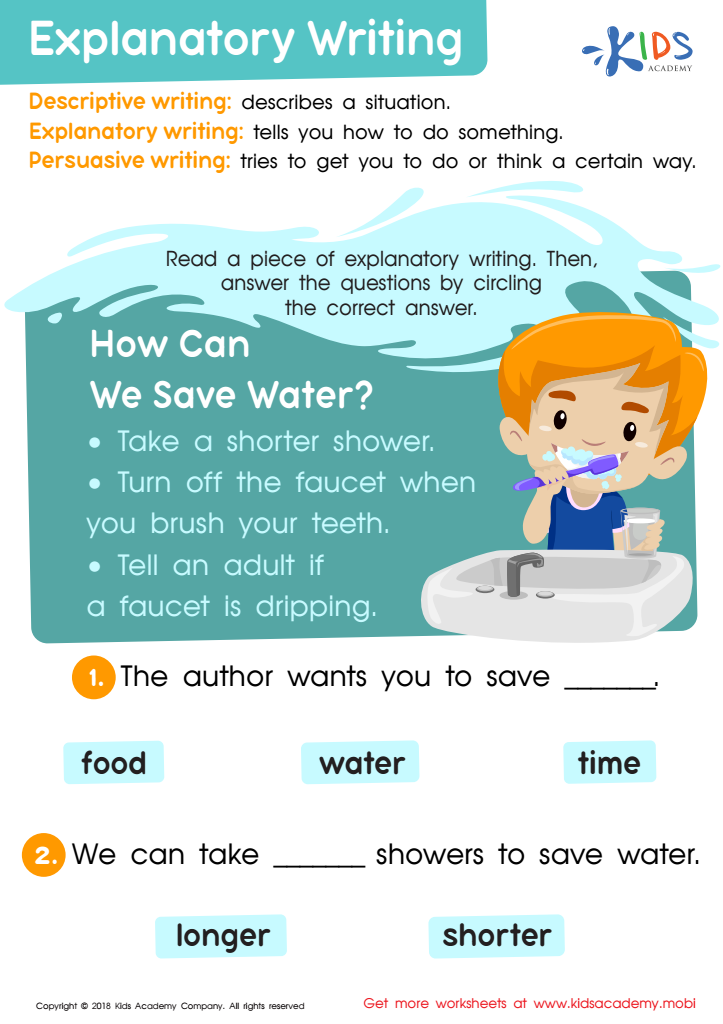

Explanatory Writing Worksheet
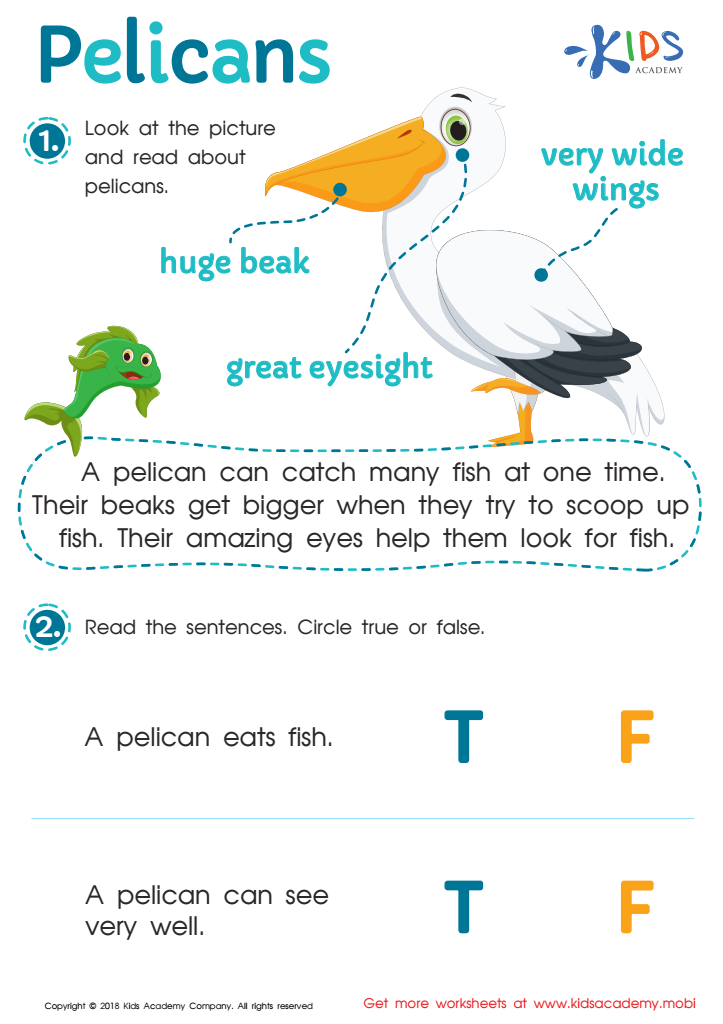

Pelicans Worksheet
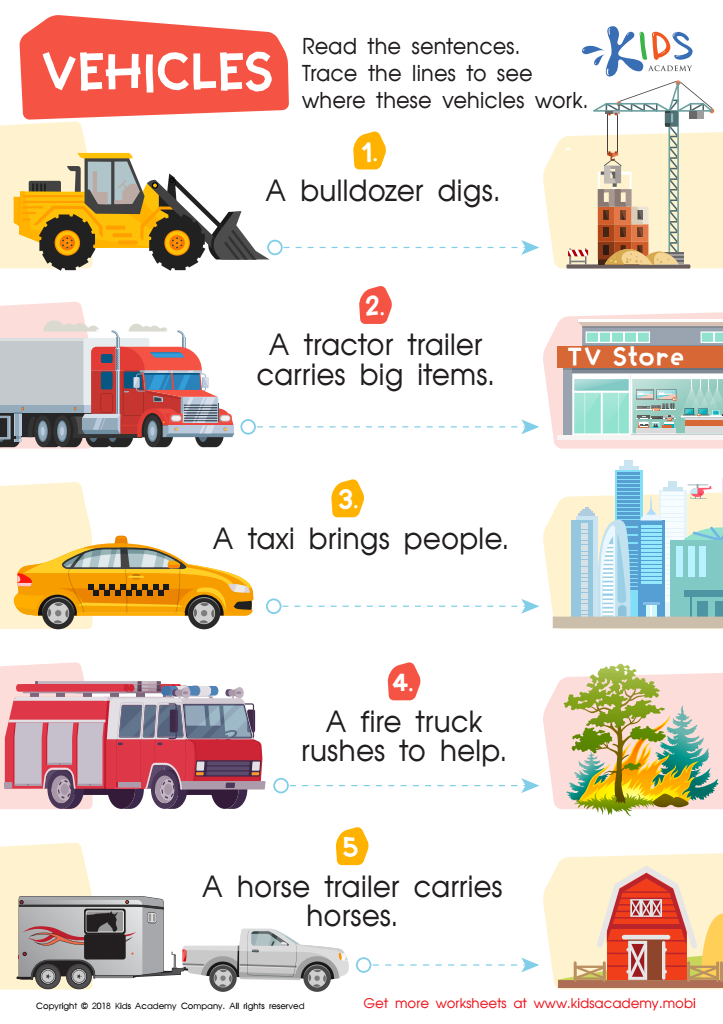

Vehicles Worksheet
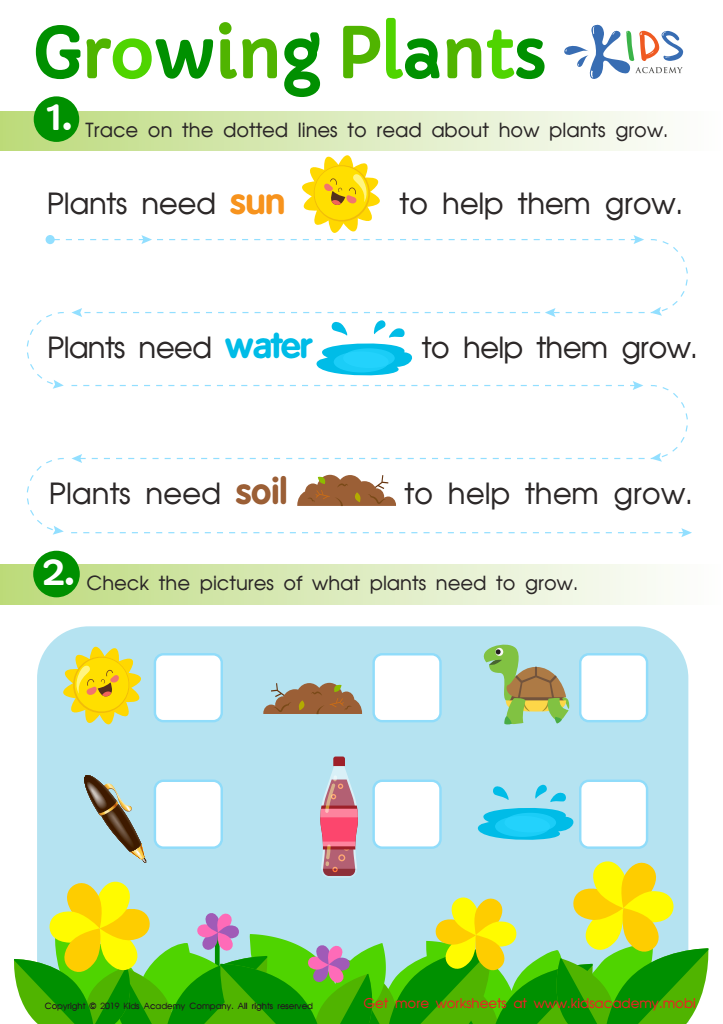

Growing Plants Worksheet


The Dentist Worksheet
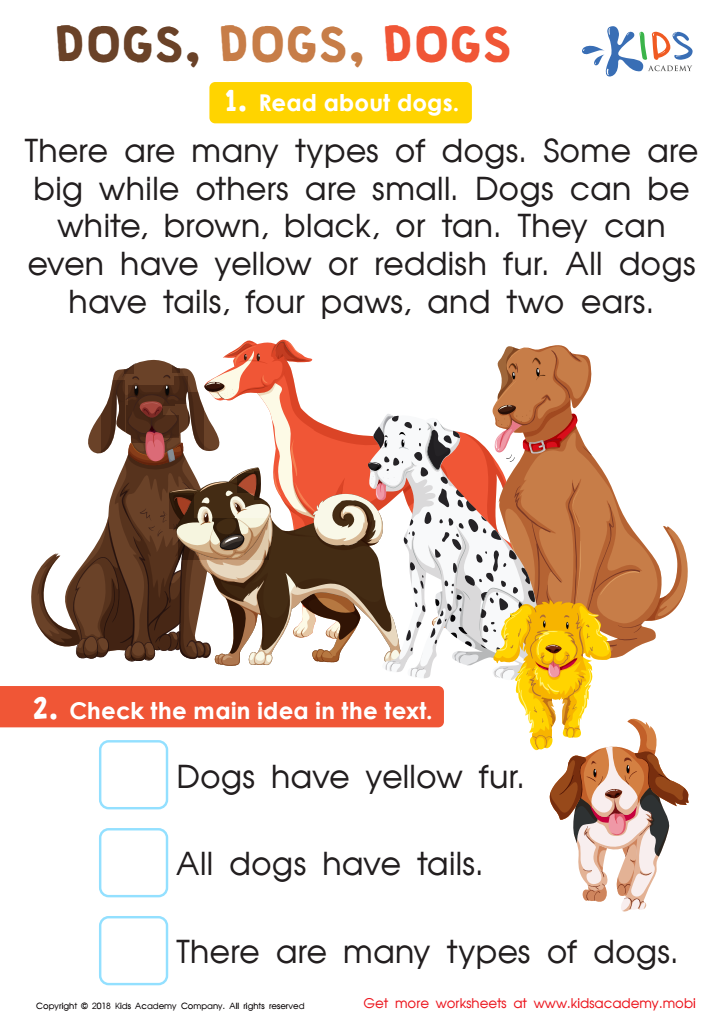

Dogs, Dogs Worksheet
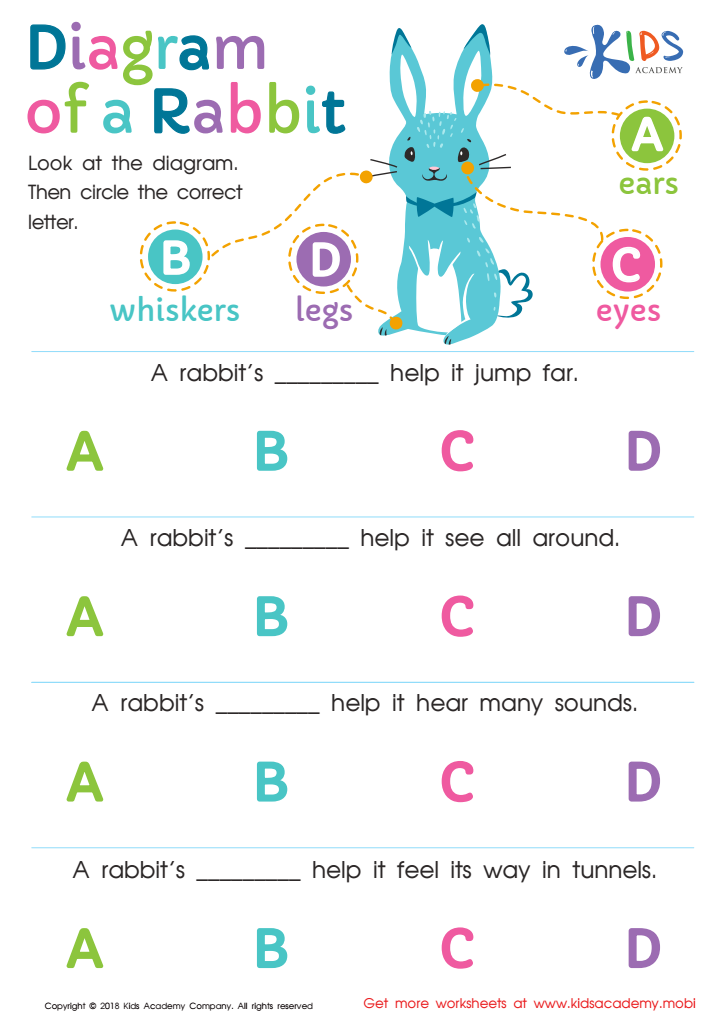

Diagram of a Rabbit Worksheet
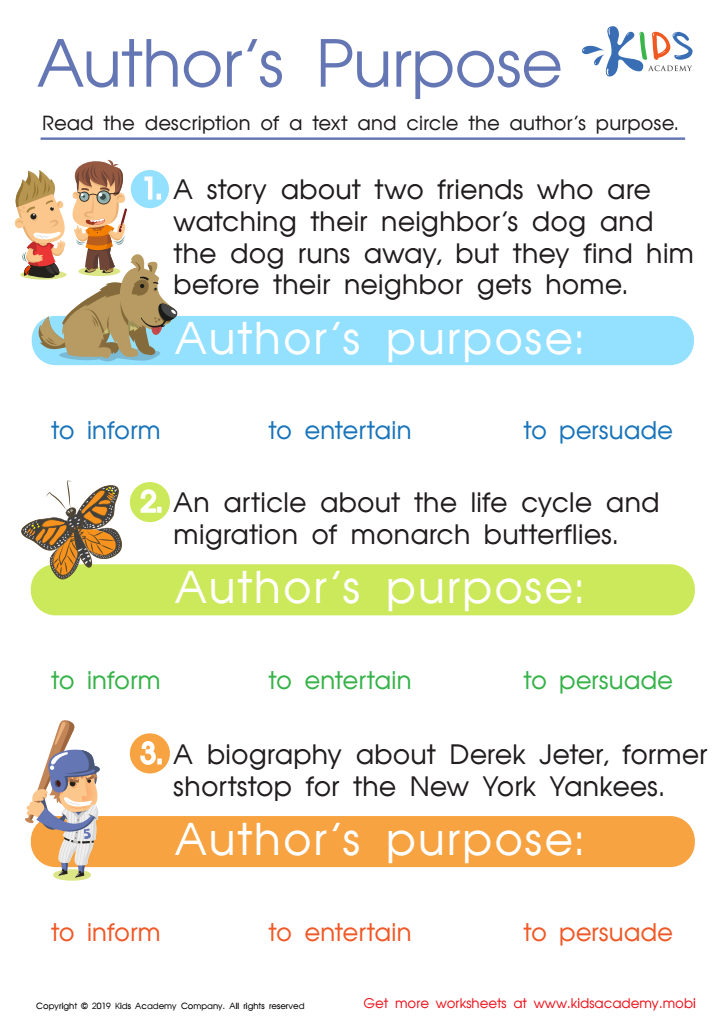

Author's Purpose Worksheet


More Octopus Facts Worksheet
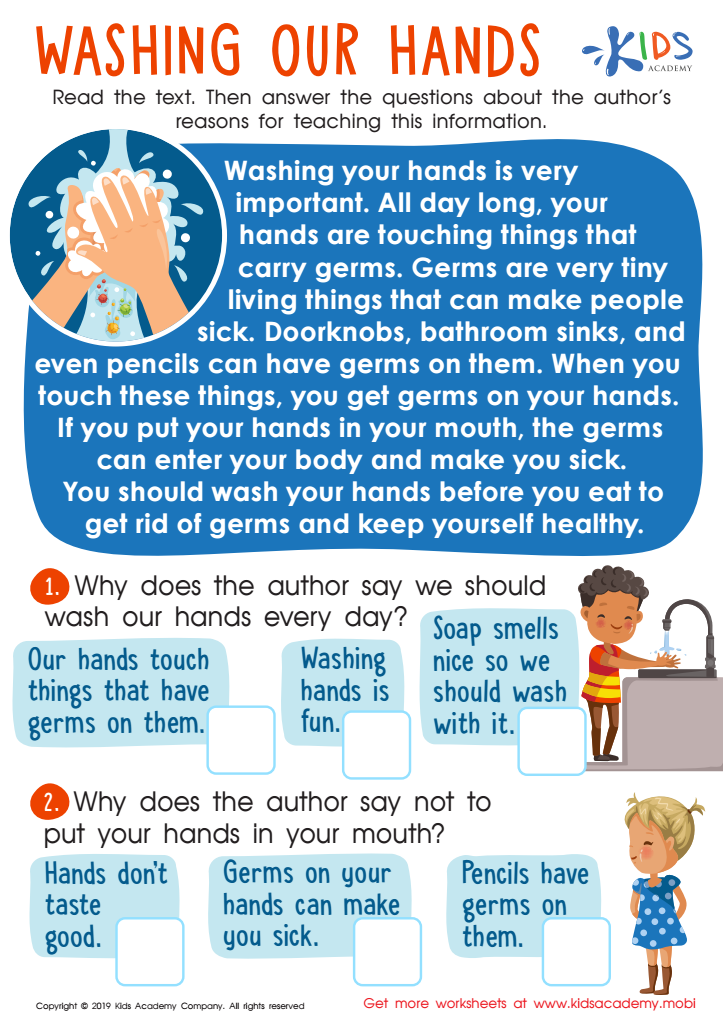

Washing Our Hands Worksheet
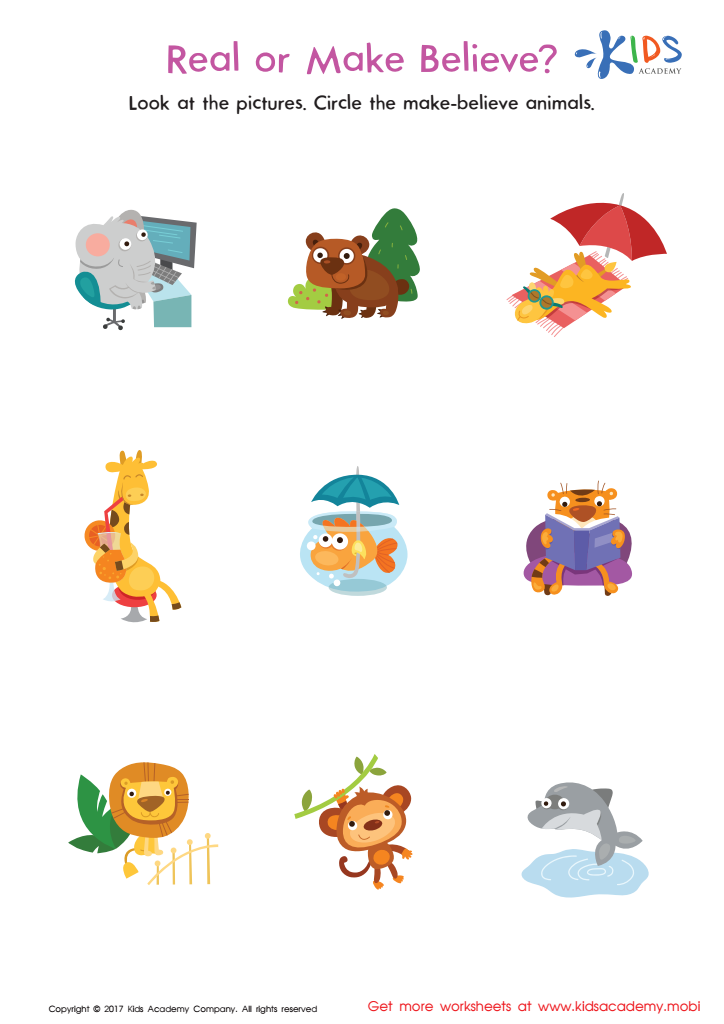

Fact or Make Believe Worksheet
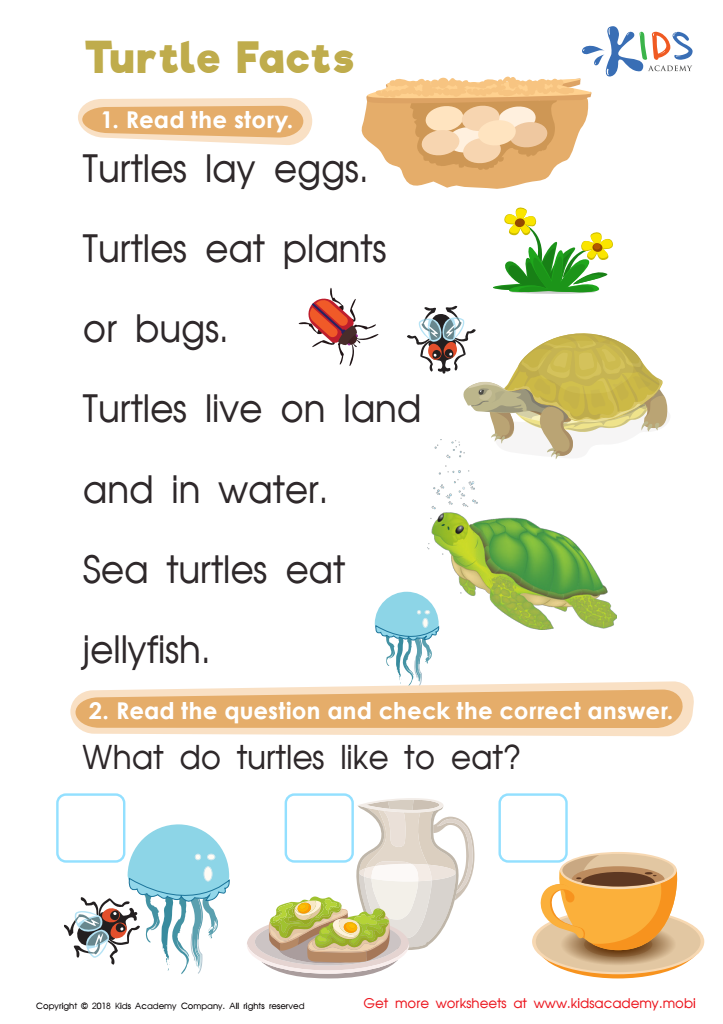

Turtle Facts Worksheet
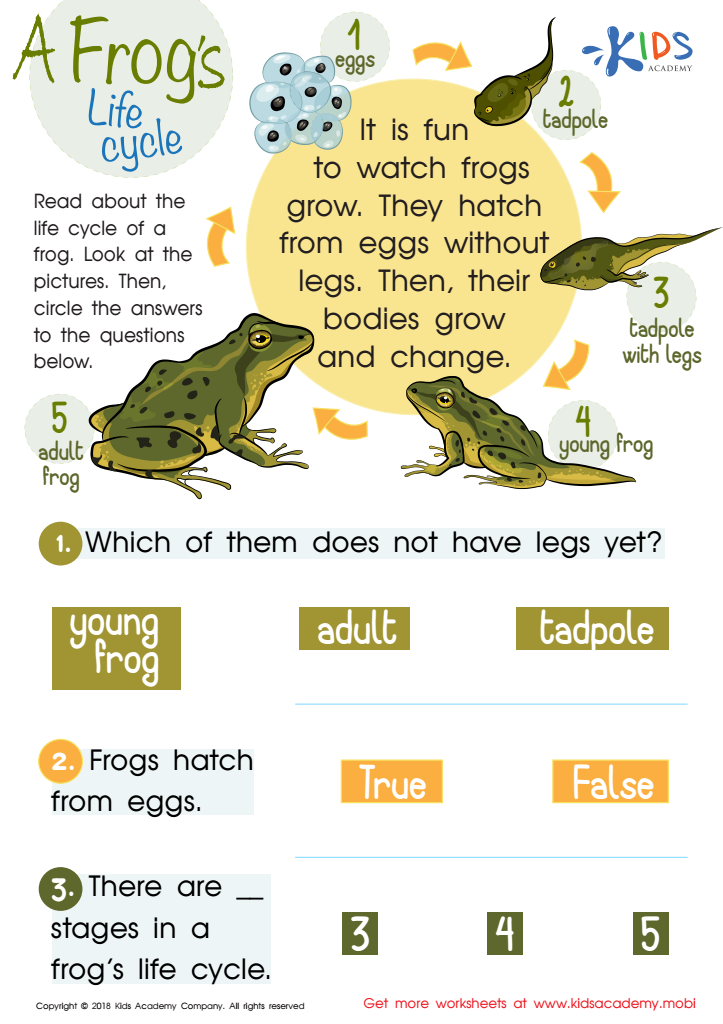

A Frog’s Life Cycle Worksheet
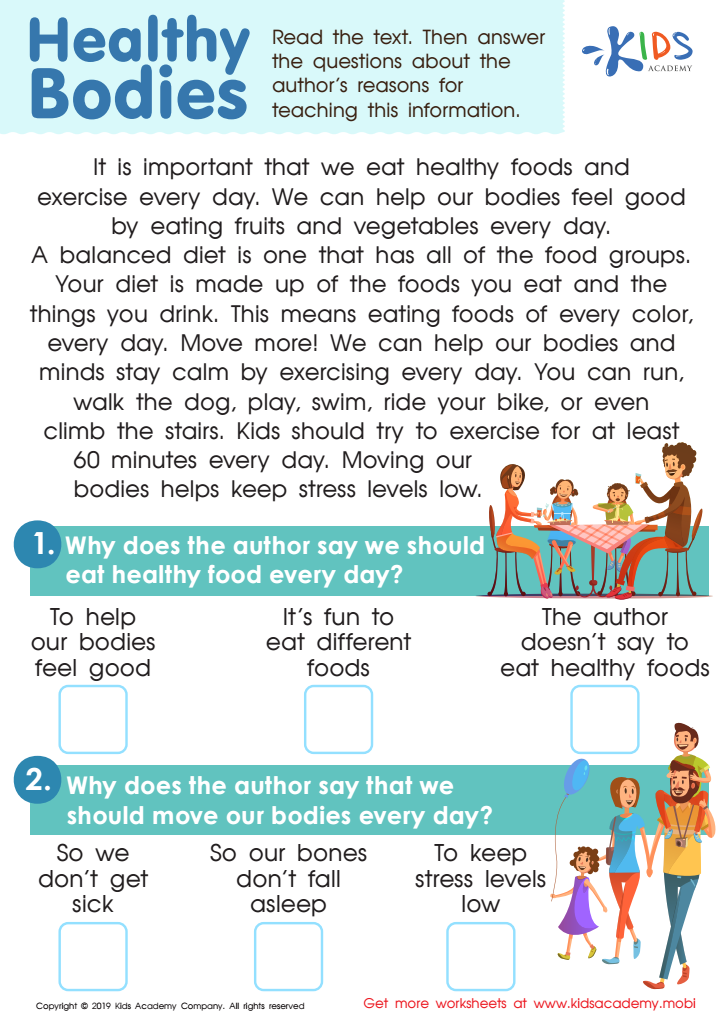

Healthy Bodies Worksheet
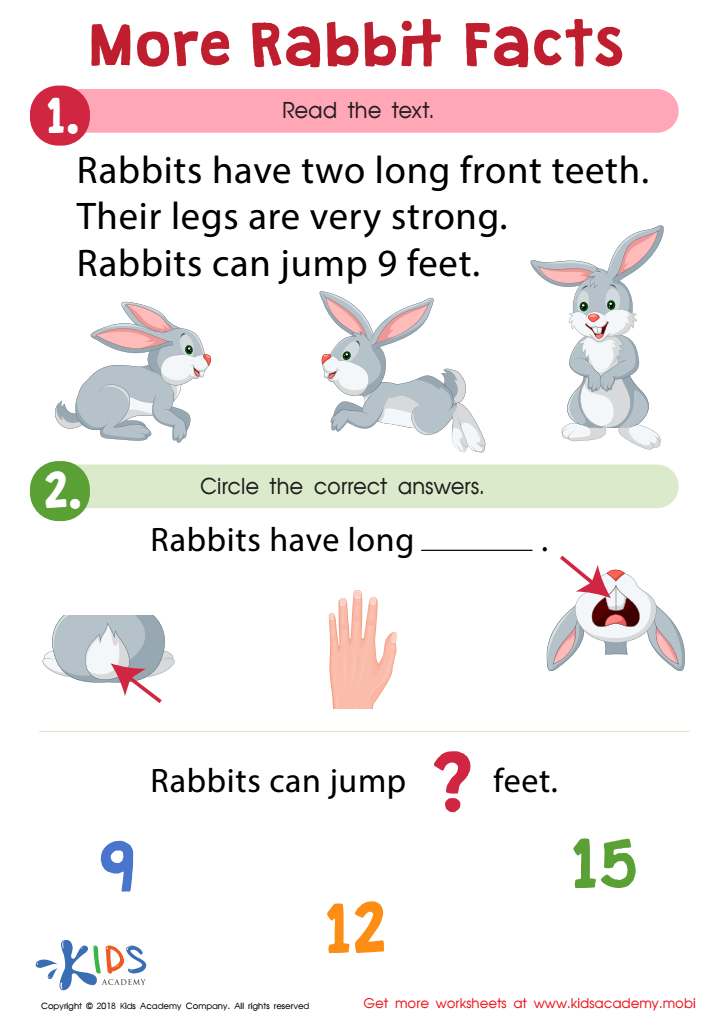

More Rabbit Facts Worksheet
Parents and teachers should care about reading non-fiction to children aged 5-7 as it plays a crucial role in their development and prepares them for a well-rounded education. Non-fiction exposes young minds to real-world concepts, sparking curiosity and expanding knowledge beyond their immediate experiences. By learning about animals, places, science, and more, children develop a broader understanding of the world, which can cultivate a lifelong love for learning.
Non-fiction also enhances vocabulary by introducing specialized terminology that is often absent in fiction. This supports language development and improves comprehension skills. Additionally, it helps young readers differentiate between factual and fictional information, laying the foundation for critical thinking.
Reading non-fiction material as a group activity can promote engaging discussions and encourage children to ask questions, fostering a sense of inquiry and exploration. This not only sharpens their intellectual abilities but also boosts their confidence in how they process information and articulate their thoughts.
Moreover, non-fiction often includes features like charts, graphs, and captions, which help in the development of key literacy skills such as interpreting visual information and understanding text structures. This multidimensional learning approach ensures that children are not just reading, but comprehending and contextualizing, thereby prepping them for future academic success.

 Assign to My Students
Assign to My Students
















